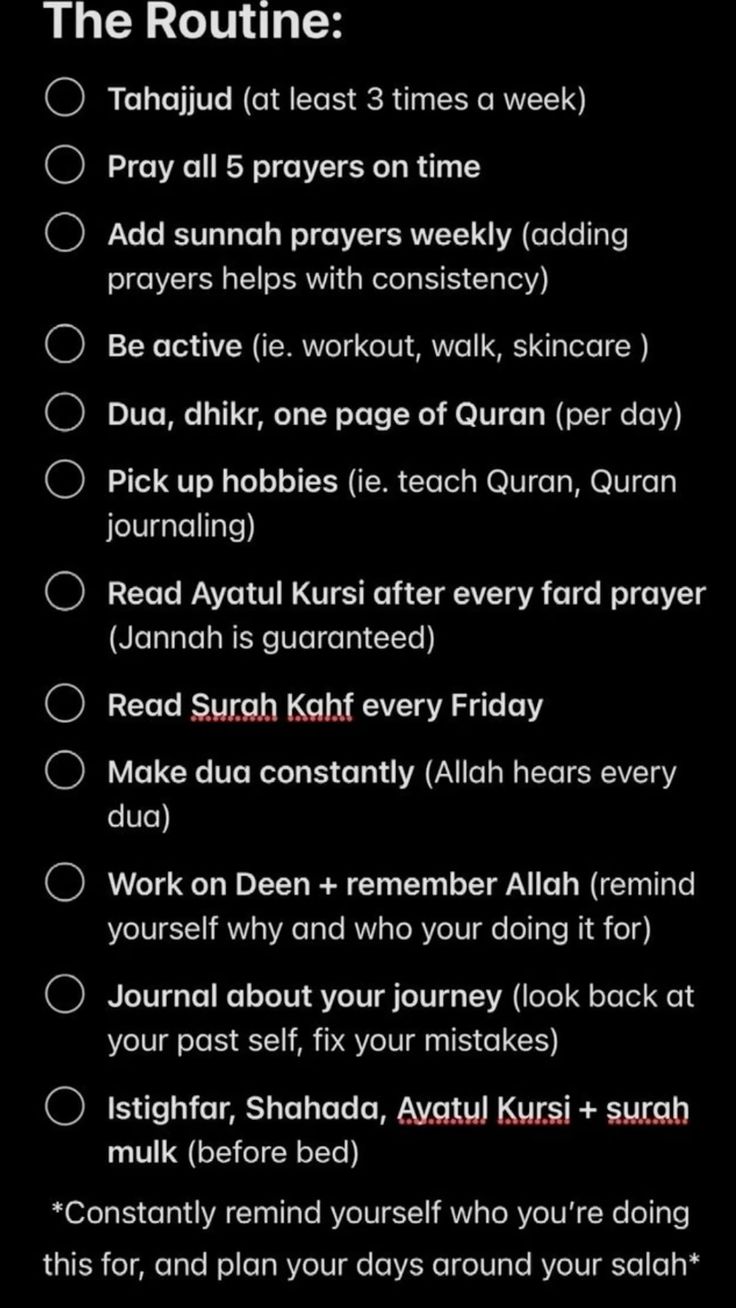
Breaking the Cycle of Burnout: Avoiding Exhaustion While Keeping Up with Ibadah
Ramadan is a time of spiritual growth and renewal, but let’s be honest—between fasting, prayers, work, family, and personal commitments, it’s easy to feel drained. We often push ourselves too hard, trying to do everything, only to end up feeling overwhelmed. But worship (Ibadah) isn’t meant to exhaust us—it’s meant to uplift us.
So how do we find a balance between spiritual devotion and self-care? Here’s how to avoid burnout while staying consistent in Ibadah.
1. Prioritize Quality Over Quantity
It’s tempting to take on everything—reading an entire Quran, praying all the extra Nawafil, attending every gathering—but Islam teaches us that consistency matters more than intensity.
✅ What You Can Do:
- Focus on small, sustainable acts of worship rather than overloading yourself.
- If reading an entire Quran isn’t feasible, focus on understanding and reflecting on a few verses deeply.
- Instead of long Nawafil prayers every night, pray what you can with full concentration and sincerity.
🔹 Hadith Reminder: The Prophet ﷺ said, “The most beloved deeds to Allah are those that are consistent, even if they are small.” (Bukhari, Muslim)
2. Listen to Your Body
Ibadah is important, but so is taking care of yourself—burning out won’t help your spirituality.
✅ What You Can Do:
- Prioritize sleep: Even if you’re waking up for Suhoor and Taraweeh, try to get at least 6 hours of sleep (broken or continuous).
- Eat for energy: Avoid heavy, oily foods that drain you; opt for proteins, complex carbs, and hydrating foods.
- Take power naps: A short 15-20 minute nap can refresh your mind and boost your energy.
🔹 Pro Tip: Prophet Muhammad ﷺ encouraged balance—he prayed, fasted, and worshipped while also eating well and resting. Follow his example!
3. Set Realistic Ibadah Goals
Not everyone can dedicate hours to worship—if you have work, kids, or studies, it’s okay! Ibadah isn’t just about rituals; it’s about sincerity.
✅ What You Can Do:
- Time-block your worship: Even 10 minutes of Quran or Dhikr after each prayer adds up.
- Multitask with Dhikr: While cooking, commuting, or doing chores, engage in remembrance of Allah.
- Combine worship with daily life: Cooking Iftar? Listen to an Islamic lecture. Resting? Reflect on a verse from the Quran.
4. Give Yourself Grace & Let Go of Guilt
Some days, you’ll feel productive; other days, exhaustion might hit. That’s okay. Worship isn’t about perfection—it’s about intention.
✅ What You Can Do:
- If you miss a goal, don’t beat yourself up—just get back on track.
- Remember, even rest can be an act of worship if done with the right intention (to regain strength for Ibadah).
- Celebrate small wins—every Dua, every prayer, every moment spent remembering Allah counts.
5. Seek Barakah in Your Time
When you put Allah first, He puts barakah (blessing) in your time.
✅ What You Can Do:
- Start each day with Dua for barakah in your time and energy.
- Make your daily work/study an act of worship by doing it sincerely for Allah’s sake.
- Trust that Allah rewards every effort, even the small ones.
Final Thoughts
Ramadan is not a competition; it’s a journey. The goal isn’t to exhaust yourself, but to grow—spiritually, mentally, and emotionally. Take care of your body, pace yourself, and remember: worship is about connection, not burnout.
✨ What’s one way you’re balancing Ibadah and self-care this Ramadan? Let’s share and support each other! 💛
No Responses